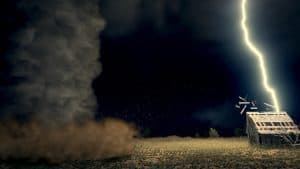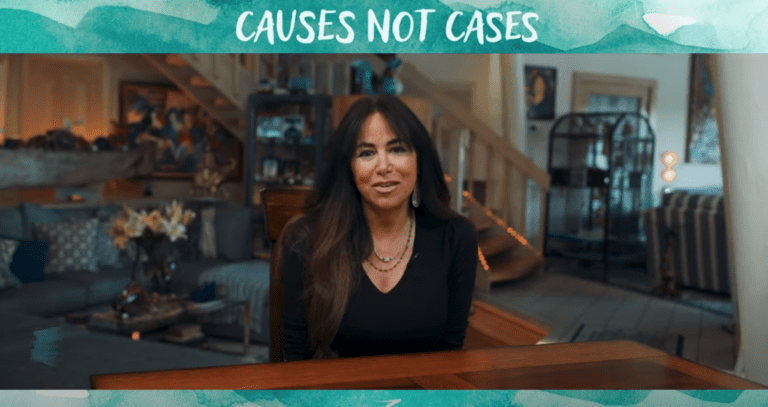[profileleft] [/profileleft]We watch and read the news and regularly see stories about weather disasters that occur. We tend to struggle to imagine what it’s like to experience such an event. Those of us who have been through this type of a situation understand that it’s impossible to explain what it’s all about. This is particularly true for those of us who have driven through these storms. Floods, tornadoes, hurricane-like conditions and other forms of bad weather wreak havoc on roads. Sadly, many of these weather events lead to total catastrophe. Property is utterly destroyed, people are seriously injured and others are even killed.
[/profileleft]We watch and read the news and regularly see stories about weather disasters that occur. We tend to struggle to imagine what it’s like to experience such an event. Those of us who have been through this type of a situation understand that it’s impossible to explain what it’s all about. This is particularly true for those of us who have driven through these storms. Floods, tornadoes, hurricane-like conditions and other forms of bad weather wreak havoc on roads. Sadly, many of these weather events lead to total catastrophe. Property is utterly destroyed, people are seriously injured and others are even killed.
Many people likely assume that these disasters do more harm than other relatively unforeseen occurrences. According to data that the Weather Channel recently published, that is not the case when it comes to car accidents that occur in inclement weather. Below you’ll find a breakdown of these data.
About the Data
The Weather Channel compared the fatality statistics caused by weather disasters to those caused by car accidents that occur in inclement weather. The difference is that a large number of weather-related traffic accidents occur in weather that does not rise to the level of disaster. The network found the following in terms of annual deaths in the United States:
- Flooding – 81 people
- Lightning – 48 people
- Tornado – 70 people
- Hurricane – 46 people
- Heat – 130 people
These fatality totals are based on the average number of annual deaths over the past 30 years. The researchers compiling the data then reviewed the statistics regarding traffic accidents over the past 10 years in the United States. They found the following:
- 5,748,000 car accidents per year
- 1,259,000 weather-related traffic accidents per year
- 445,000 people injured in weather-related traffic accidents
- More than 5,800 people killed in weather-related traffic accidents per year
That means that on average, only 6 percent of the people who are killed in weather-related traffic accidents in the United States lose their lives because of weather disasters. As such, the comparison is not even close: driving even in a steady rainfall is more likely to lead to at least one death than any of the weather disasters included in this analysis. Those interested in seeing the full breakdown can find it here.
Weather-Related Traffic Accidents: Rain and Fog
In addition to the information the Weather Channel published, the Federal Highway Administration tracks and records data relating to weather-related traffic accidents on a more specific level. According to the FHA, the following statistics relate to traffic accidents that occur in the rain in the United States on an annual basis:
- 573,784 total crashes
- 228,196 injuries
- 2,732 fatalities
Traffic fatalities that occur in the rain account for nearly half of all deaths that result from weather-related crashes.
In terms of fog, the FHA has the following data:
- 28,533 total crashes
- 10,488 injuries
- 495 fatalities
Rain and fog are two of the most common types of weather patterns that can strike Southern California. These are the relevant dangers motorists will face periodically on our area roads.
Ideas for Avoiding Weather-Related Traffic Accidents
If you are going to be driving in bad weather, there are steps that you can take to lower the chance that you’ll be involved in a crash. Generally speaking, these steps are similar whether you’ll be driving in the rain or in fog. Examples of these steps include:
- Slow down – Most experts suggest that you lower your speed a bit when driving in the rain or in the fog. This will provide you with more time to maneuver should you need it.
- Increase following distance – You should consider providing yourself with more room between you and the vehicle in front of you if you’re able to do so. This will also provide you with more time to react to an unforeseen situation.
- Give yourself more time – Try to adjust your schedule as much as you can so that you don’t find yourself in a rush as you drive in bad weather.
- Remain calm – Ultimately, good and safe driving is about mindset more than anything else. It will likely be stressful if you’re going to be on the freeways in the rain or the fog. Keep yourself calm so that you’re not tempted to make poor decisions.
These ideas will help you minimize your exposure to the most dangerous elements of driving in bad weather in Southern California. These include:
- Poor visibility
- Poor traction
- Limited maneuverability
- Unexpected decisions by other drivers
How a San Diego Personal Injury Lawyer Can Help
Even if you take every precaution imaginable before driving in bad weather, it’s still possible that you’ll be involved in a crash. That’s because you can’t control the decisions other drivers make while they share the road with you.
If you find yourself injured because someone else was negligently driving in the rain or the fog, you need to take action as soon as possible to preserve and enforce your legal rights. Contact the San Diego car accident lawyers at Gomez Trial Attorneys to schedule a free initial consultation.







